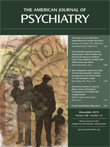David Foster Wallace was a brilliant comic writer. Readers of this book will inevitably find themselves chortling. Wallace was also disturbing, with his mordant observations. He was illuminating in his insights concerning everyday consciousness and its flickering, malleable nature. He was, in essence, a great artist capable of changing the reader's view of the quotidian ordinary and revealing its strangeness and beauty. Much of this was accomplished through a relentless exposure of his own anxiety-ridden subjectivity. One could speculate that he somehow retained the small child's perception of the world, one that is sometimes exhilarating, sometimes scary, and frequently fascinating. Wallace's filter for sensory experience remained porous and was vividly expressed in his writing. (I use the past tense because he committed suicide in 2008, abruptly removing himself from the stage of modern literature to which he had contributed much.)
The work under review is a series of essays that conform to the original meaning of the term as a literary “experiment” or “attempt.” The subjects they cover are wildly disparate, ranging from Wallace's teenage experience of being a nationally ranked junior tennis player in his home state of Illinois (the reader will never feel quite the same about the Great Plains after Wallace's explication of the region's weather and geographical complexity) to a riff on late-20th-century television and its relationship to postmodernist literature to the tour de force, an account of a magazine-commissioned “imprisonment” of a week on a luxury cruise liner that sailed out of Fort Lauderdale through the Caribbean. In many ways, he was the penetratingly observant anthropologist, piling up reams of data, replete with exhaustive footnotes. The great Polish anthropologist, Malinowski, with his searingly self-revelatory A Diary in the Strict Sense of the Term, comes to mind. Wallace was the ethnographic protagonist trying to make sense out of the “alien” environments he had been sucked into. He bears comparison with Proust, another remarkable participant-observer, who was extremely funny, ironic, and poignant and was basically compassionate concerning the extravagant people he described.
Much of what is compelling about Wallace's writing is his psychic self-exposure and ongoing struggle and insights into many elements of his own mental disturbance (e.g., the crippling social anxiety, obsessive ruminations, and frank agoraphobia that beset him on the cruise ship).
Not surprisingly, Wallace's engagement with psychiatry, as both patient and caustic observer, was considerable. While an undergraduate at Amherst College, he published “The Planet Trillafon as It Stands in Relation to the Bad Thing” (
1). Funny and frightening (and I suspect autobiographical), it recounts a psychotic breakdown, suicide attempt, and treatment:
I've been on antidepressants for, what about a year now and I suppose I feel as if I'm pretty qualified to tell you what they're like. They're fine in the same way that, say, living on another planet that was warm and comfortable and had food and fresh water would be fine. It would be fine but it wouldn't be good old Earth, obviously. I haven't been on Earth now for almost a year, because I wasn't doing very well on Earth, I've been doing somewhat better here where I am now, on the planet Trillafon which I suppose is good news for everyone involved. (
1, p. 26)
In
Good Old Neon (
2), he provides a sympathetic portrait of the psychiatric treatment of a deeply disturbed narcissistic patient who perceives himself as completely empty and fraudulent. The story has a chilling outcome, presaging that of Wallace himself. In one of his master works,
Brief Interviews with Hideous Men, he includes a story titled “The Depressed Patient” (
3). While hilarious in parts, it is also tragic and profoundly insightful concerning affective illness, its interplay with personality disorder, and the sometimes frustrating and masochistic nature of the psychotherapeutic engagement. Wallace reveals enough knowledge about psychopharmacology and psychotherapy in this story that he could be regarded as an accomplished graduate of a very good psychiatric residency training program. He was a brilliant polymath, able to master any subject he set his mind to, including psychiatry.
Jonathan Franzen, the gifted novelist of
The Corrections, was a close friend of Wallace. Wallace's suicide profoundly affected Franzen, and he took off for a godforsaken atoll in the South Pacific said to be where Defoe's Robinson Crusoe was marooned. There, Franzen scattered some of Wallace's ashes and came to terms with his grief and anger over his friend's suicide. His essay on this journey (
4), its dangers, and his deep understanding and compassion concerning his beloved friend is almost a codicil to the book (i.e., it could have also been titled “A Fun Thing I'll Never Do Again”). Even in death, Wallace exerted a powerful influence.

